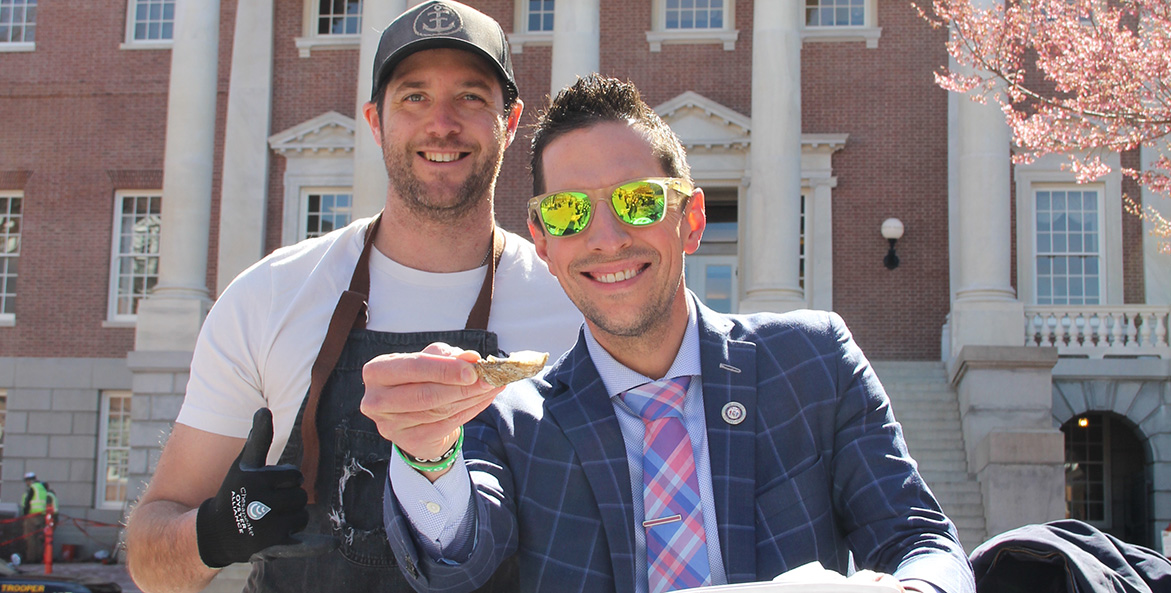Spring 2025
Protecting Key Environmental Funding in the Budget
It was a tough year of budget decisions in Maryland's General Assembly. With a historic $3 billion deficit, Governor Wes Moore and legislators had to consider funding cuts and new revenue sources wherever possible.
During this process, CBF and our members had to aggressively advocate on behalf of the Bay, especially after the Department of Legislative Services recommended diverting tens of millions of dollars annually from some of our most critical clean water programs like the Chesapeake and Atlantic Coastal Bays 2010 Trust Fund, Clean Water Commerce Fund, and Program Open Space. These dollars go directly to farmers, watermen, homeowners, and restoration practitioners who are on the ground improving Maryland's waterways.
Thanks to our dedicated activists and partners, while not everything we hoped for, the state budget remained—for environmental programs that not only protect the Bay, but make economic sense for our state, jobs, health, and people.
CBF Supports Legislation for Oysters, Farmers, and More
In addition to balancing the budget, legislators had to consider thousands of new bills this session. Topics ranged from education, to renewable energy, to making the Orange Crush Maryland's official state cocktail. When new legislation could affect our state's waterways, either positively or negatively, CBF weighs in.
One bill we strongly supported this year was the Moore administration's Chesapeake Bay Legacy Act. This legislation will give our farmers, watermen, oyster growers, and restoration scientists the tools they need to succeed, and in turn, will reduce pollution in our rivers and streams.
We also spoke up for oyster restoration. CBF's second annual Oyster Lobby Day at the state house offered legislators an opportunity to enjoy fresh, locally grown oysters while learning about the importance of the aquaculture industry and large-scale oyster restoration in Maryland.
Smith Island Spotlighted on 60 Minutes
Did you catch Maryland's beloved Smith Island, and CBF President and CEO Hilary Harp Falk, on CBS's 60 Minutes?
The Chesapeake Bay's "disappearing" islands are on the front lines of the climate crisis, facing immense threats from sea-level rise, flooding, and erosion. For centuries, the people of Smith Island have made their living off the bounty of the Bay, and those traditions are now at risk.
To tell this important story, 60 Minutes correspondent Jon Wertheim interviewed island residents about their unique culture, as well as CBF's Harp Falk, about what's at stake if the climate crisis is not urgently addressed. Harp Falk offered a scientific perspective, as well as a personal one. Having spent many summers on Smith Island, she's seen it change before her eyes and knows what's at stake.
"When you spend time here, there's a saying that you get mud between your toes," Harp Falk told Wertheim in their interview. "It means that Smith Island never leaves you, that you will always be connected to this place."
—Allison Colden
Maryland Executive Director
Chesapeake Bay Foundation



